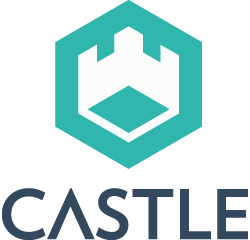Career Opportunities: Punk, Startups, and DIY Culture
I think about punk a lot—at least once a day on average. Sometimes it’s a specific band, sometimes it’s the history of the genre, sometimes it’s my personal history with punk. Punk is a big part of who I am, and I reflect on the idea accordingly.
My mental connection between punk and startups came during Venture for America Training Camp in the summer of 2012. Each Fellow had to give an Ignite-style presentation about a topic of his or her own choosing. With my penchant for evangelizing punk at any appropriate opportunity, I had no trouble deciding on a general topic.
I knew I would have to cover the history of punk1 and my relationship with it, but I also wanted to cross the musical divide and connect with my (mostly non-punk) audience. By examining the traditions of punk, I found the right bridge: DIY.
DIY stands for “do it yourself,” perhaps the core principal of the punk ethos. From the beginning, punk has had a homemade quality to it; bands made their own logos, their own gig posters, and their own merch. Punk was partly a reaction to the corporate rock of the 70s, with overblown and overproduced bands like Kansas or REO Speedwagon spending millions on fancy things while producing material of little musical merit.
London punks showing off their DIY shirts, jackets, and hair.
Along with the DIY attitude comes a high degree of hustle and grit. Tales abound of bands like Black Flag and the Minutemen touring relentlessly, sleeping in their vans and jamming econo2. The bands often toiled in obscurity for years, but they produced some of the greatest (punk) albums ever recorded and have secured their place in history.
The entrepreneurs I know practice the same values. A few weeks ago, I watched VFA 2012 Fellow and Zest Tea founder James Fayal stuff and seal bags of tea at his house3 for several hours, a one-man assembly line for highly caffeinated teas. He then took those bags from Philadelphia to New York City, hauling trash bags of tea around Manhattan just so he could showcase his product for a couple hours at a VFA event that night.
Castle cofounders Scott Lowe (left) and Max Nussenbaum (right) help Zest Tea founder James Fayal (center) package tea.
Taken in the right light, punks look a lot like entrepreneurs. They share a core attitude of hard work, passion, and dedication. Swap out a band for a founding team, a genre for a market, and an album for a product, and you’ve made the jump seamlessly.
My presentation has since been lost to the sands of time, but I remember the message clearly: be a punk. Don’t be afraid to give the system the middle finger and to start something on your own. Do it yourself.
- Briefly: proto-punk (Iggy Pop and The Stooges, MC5); punk (The Ramones, Sex Pistols, The Clash); post-punk (Gang of Four, Joy Division) and hardcore (Black Flag, Minor Threat); punk revival (Green Day, Rancid)↩
- A term coined by the Minutemen, hardcore’s most eclectic and idiosyncratic act↩
- Fittingly, James’s housemates are dedicated punk rockers ↩
- jamesfayal reblogged this from entercastle
 debateables likes this
debateables likes this- entercastle posted this
